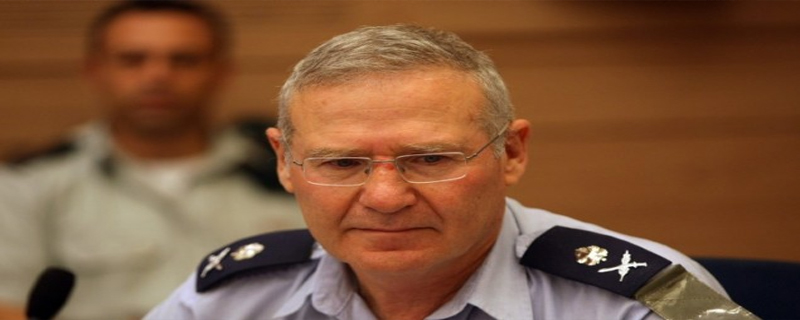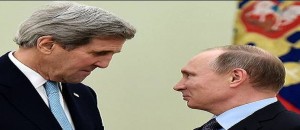Israel should consider intervening in Syria in response to the mass murder of civilians, and not just react to strategic threats to the Jewish State, a former chief of military intelligence told The Times of Israel on Monday
Amos Yadlin, who headed military intelligence between 2006 and 2010 after serving as deputy commander of the Israeli Air Force, said that Israel should weigh launching a military strike at Syria if the Assad regime uses chemical weapons against his civilian population on a large scale.
“We have red lines [for intervention]. Our red lines include [Syria] firing at Israel, the transfer of advances weapons to Hezbollah, and activity by the chemical [weapons] units. I believe we should add to these red lines the murder of civilians at a level where we can no longer stand idly by,” Yadlin said.
Unilateral action should by no means be Israel’s first option, said the retired major general, who currently heads the Institute for National Security Studies at Tel Aviv University.
The preferable contingency would be a NATO operation led by the United States with Turkey as its key member to implement a no-fly zone over Syria “at the very minimum.” The international drive should also include the opening of humanitarian corridors and pinpoint “standoff strikes” by NATO aircraft firing from afar at strategic regime targets.
“If Assad woke up one day to discover that all his helicopters dropping exploding barrels were gone; then the next day he had no navy; then the following day his security headquarters were attacked; he would realize that there’s a price to pay for his actions,” Yadlin said. “He needs to understand that he loses something every night that passes.”
“I don’t recommend a ground operation, but I do recommend changing Assad’s perception of where things are going,” he added.
A senior IDF officer told The Times of Israel last week that the Assad regime has used chemical weapons over 30 times since Syria joined the Chemical Weapons Convention last year, with lethal results. The weapons were “tactically deployed” with mortars and short-range rockets, based on weaker gas such as chlorine.
Yadlin said that if Israel discovered that large-scale atrocities are being committed — similar to the genocides perpetrated in Bosnia and in Rwanda in the mid-1990s — it should act even outside the scope of an international coalition.
“By doing this, Israel would be giving Assad some support in the Arab world. But the scope of killing in Syria creates a moral imperative for us to do it ourselves, even if it’s not our first preference,” he added.
“If Israel discovers that Assad is using chemical weapons against his people in mass attacks, it should intervene militarily.”
On Sunday, a member of the Free Syrian Army in the southern city of Daraa told The Times of Israel that his forces have appealed to donor states to help funnel advanced weaponry to moderate rebels, which have suffered significant setbacks in recent months confronting both the regime’s army and Jihadist groups such as Al-Nusra Front and the Islamic State of Iraq and Syria.
Yadlin said that tracking weapons once they’ve been delivered to rebel hands is “extremely difficult,” which is why international intervention remains preferable.
“If you use the air force against Syria, you’re not handing over any weapons which could leak to al-Qaeda,” he said. “If you use the air force against the Syrian army, you give the rebels a military advantage which they didn’t have before … that’s the better way to help.”
Israeli jets have reportedly struck Syrian sites a number of times over the past two years, hitting weapons shipments headed for Lebanese terror group Hezbollah according to foreign reports. It has also launched missiles at Syrian positions to respond to cross-border fire.
But Jerusalem has never admitted to the air strikes and has kept a low profile vis-a-vis the civil war.
Speaking to the Times of Israel on April 30, Syrian dissident Kamal Labwani criticized the Israeli leadership for presenting an incoherent position on whether Bashar Assad should stay or go.
Yadlin admitted that Israel’s leaders are indeed torn over the question of whether Assad’s ouster would contribute to Israeli security. But he opined that strategically speaking, it certainly would.
“It may make life more difficult for the brigade commander on the Golan or for the division commander responsible for guarding the border. But from the point of view of the prime minister’s office and the defense ministry, [Assad’s ouster] would be a very positive strategic development,” he said.
“The Sunnis who are being killed as we speak will never join a coalition with Iran and Hezbollah, and it is extremely important to weaken this radical axis. [Hezbollah chief] Hassan Nasrallah himself says that if Assad goes it will be a great victory for Israel and the US. And he’s right.





